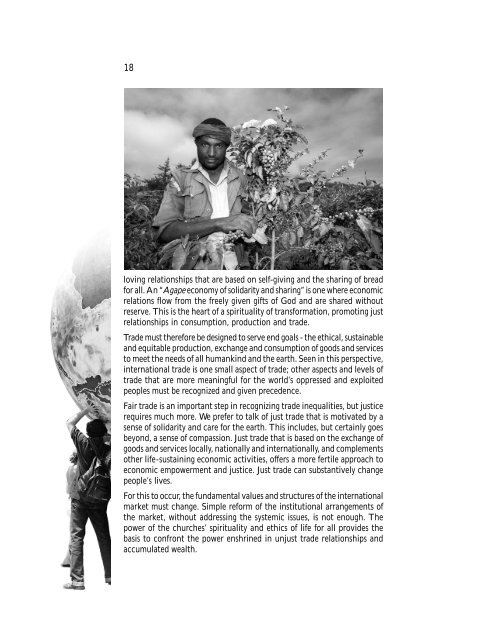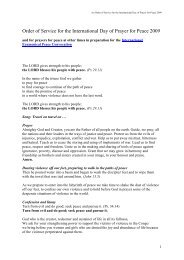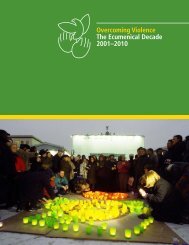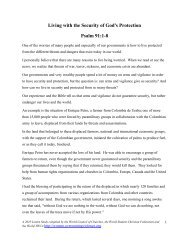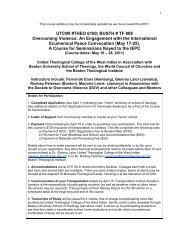Alternative Globalization Addressing Peoples and Earth
Alternative Globalization Addressing Peoples and Earth
Alternative Globalization Addressing Peoples and Earth
You also want an ePaper? Increase the reach of your titles
YUMPU automatically turns print PDFs into web optimized ePapers that Google loves.
18<br />
loving relationships that are based on self-giving <strong>and</strong> the sharing of bread<br />
for all. An “Agape economy of solidarity <strong>and</strong> sharing” is one where economic<br />
relations flow from the freely given gifts of God <strong>and</strong> are shared without<br />
reserve. This is the heart of a spirituality of transformation, promoting just<br />
relationships in consumption, production <strong>and</strong> trade.<br />
Trade must therefore be designed to serve end goals - the ethical, sustainable<br />
<strong>and</strong> equitable production, exchange <strong>and</strong> consumption of goods <strong>and</strong> services<br />
to meet the needs of all humankind <strong>and</strong> the earth. Seen in this perspective,<br />
international trade is one small aspect of trade; other aspects <strong>and</strong> levels of<br />
trade that are more meaningful for the world’s oppressed <strong>and</strong> exploited<br />
peoples must be recognized <strong>and</strong> given precedence.<br />
Fair trade is an important step in recognizing trade inequalities, but justice<br />
requires much more. We prefer to talk of just trade that is motivated by a<br />
sense of solidarity <strong>and</strong> care for the earth. This includes, but certainly goes<br />
beyond, a sense of compassion. Just trade that is based on the exchange of<br />
goods <strong>and</strong> services locally, nationally <strong>and</strong> internationally, <strong>and</strong> complements<br />
other life-sustaining economic activities, offers a more fertile approach to<br />
economic empowerment <strong>and</strong> justice. Just trade can substantively change<br />
people’s lives.<br />
For this to occur, the fundamental values <strong>and</strong> structures of the international<br />
market must change. Simple reform of the institutional arrangements of<br />
the market, without addressing the systemic issues, is not enough. The<br />
power of the churches’ spirituality <strong>and</strong> ethics of life for all provides the<br />
basis to confront the power enshrined in unjust trade relationships <strong>and</strong><br />
accumulated wealth.


